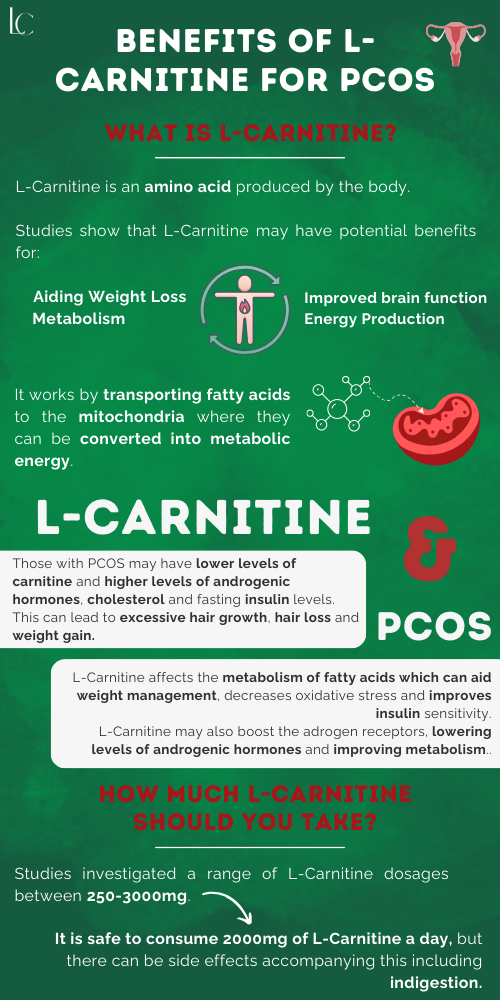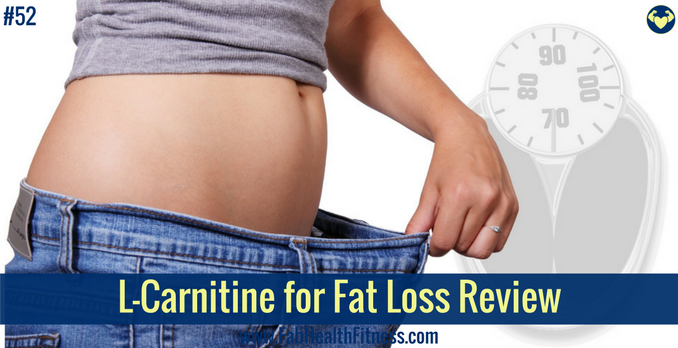L Carnitine Pcos Before And After

Polycystic Ovary Syndrome (PCOS), a common hormonal disorder affecting women of reproductive age, is often linked to a constellation of challenges, including irregular periods, ovarian cysts, and metabolic disturbances. Emerging research is exploring the potential of L-Carnitine, a naturally occurring amino acid derivative, as a supplementary treatment to mitigate some of these effects.
This article examines the evidence surrounding L-Carnitine's use in managing PCOS, exploring the before-and-after effects observed in clinical studies and considering its potential role in a comprehensive PCOS management plan. It will look at clinical trial data regarding this supplement in relation to PCOS.
Understanding PCOS and its Management
PCOS is characterized by hormonal imbalances, primarily an excess of androgens (male hormones), which can disrupt ovulation and lead to the development of cysts on the ovaries. Insulin resistance, a condition where the body doesn't respond effectively to insulin, is also frequently observed in women with PCOS, contributing to metabolic complications like weight gain and increased risk of type 2 diabetes. The syndrome affects approximately 6-12% of women of reproductive age in the United States, according to the CDC.
Current management strategies for PCOS typically involve lifestyle modifications, such as diet and exercise, alongside pharmacological interventions. Medications like birth control pills are often prescribed to regulate menstrual cycles and reduce androgen levels. Metformin, a drug commonly used to treat type 2 diabetes, can improve insulin sensitivity and help regulate ovulation.
L-Carnitine: A Potential Adjunct Therapy
L-Carnitine plays a crucial role in energy production by transporting fatty acids into the mitochondria, the powerhouses of cells, where they can be burned for fuel. Some studies suggest that L-Carnitine may improve insulin sensitivity, reduce oxidative stress, and regulate hormone levels, making it a potential adjunct therapy for PCOS.
Recent research has focused on evaluating the impact of L-Carnitine supplementation on various aspects of PCOS. These include its effects on insulin resistance, lipid profiles, ovulation, and pregnancy rates. These studies aim to measure L-Carnitine effectiveness.
Clinical Evidence: Before and After
Several clinical trials have investigated the effects of L-Carnitine on women with PCOS. Some studies have shown promising results regarding improvements in insulin sensitivity. Participants receiving L-Carnitine, in some studies, demonstrated a reduction in their insulin resistance scores compared to those receiving a placebo.
Furthermore, research has indicated that L-Carnitine may have a positive impact on lipid profiles. Studies have shown that L-Carnitine may lower levels of triglycerides and LDL cholesterol (the "bad" cholesterol), while simultaneously increasing HDL cholesterol (the "good" cholesterol).
A meta-analysis published in the Journal of Clinical Endocrinology & Metabolism, combining data from multiple randomized controlled trials, suggested that L-Carnitine supplementation may improve ovulation rates in women with PCOS undergoing fertility treatment. However, more research is needed to confirm these findings and determine the optimal dosage and duration of treatment.
It's important to note that not all studies have yielded consistent results, and some have found no significant difference between L-Carnitine and placebo groups. The variability in findings may be due to differences in study design, participant characteristics, L-Carnitine dosage, or the duration of treatment.
Dosage and Safety Considerations
The optimal dosage of L-Carnitine for women with PCOS is still under investigation. Clinical trials have typically used dosages ranging from 500 mg to 3000 mg per day. It is important to consult a healthcare professional to determine the appropriate dosage based on individual needs and medical history.
L-Carnitine is generally considered safe for most people when taken as directed. However, some individuals may experience side effects such as nausea, vomiting, stomach cramps, and diarrhea. Rare but more serious side effects include seizures and allergic reactions. Individuals with kidney problems should use L-Carnitine with caution.
The Future of L-Carnitine in PCOS Management
While the current evidence suggests that L-Carnitine may offer some benefits for women with PCOS, further research is needed to fully understand its potential role in managing the condition. Larger, well-designed clinical trials are necessary to confirm the efficacy of L-Carnitine, determine the optimal dosage and duration of treatment, and identify which subgroups of women with PCOS are most likely to benefit.
Ultimately, L-Carnitine should be viewed as a potential adjunct therapy, not a replacement for established PCOS treatments. Lifestyle modifications, such as diet and exercise, and prescribed medications remain the cornerstone of PCOS management.
As research continues, the potential for L-Carnitine to improve the lives of women with PCOS remains promising. Individuals with PCOS should discuss the potential benefits and risks of L-Carnitine supplementation with their healthcare provider to determine if it is an appropriate addition to their overall treatment plan.




:quality(85):upscale()/2017/11/04/814/n/1922729/681d3f7a59fe07cf2c5065.37118478_edit_img_twitter_post_image_file_44163298_1508437794.jpg)













